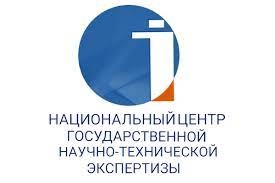PECULIARITIES OF THE REPRESENTATION OF MORAL AND ETHICAL NORMS IN THE WORKS OF A. SEIDIMBEK
https://doi.org/10.55491/2411-6076-2024-1-98-108
Abstract
It is known that the spiritual nature of the Kazakh people, which characterizes its spiritual culture, is passed on from generation to generation through the cumulative function of language. This article presents the moral and ethical principles of spiritual culture - the spirit of the people, achievements in the world of the mind, cumulative activities that are passed on from generation to generation. The main direction of our research is to consider the features of the representation of moral and ethical forms in spiritual culture. This message clearly examines the nature of artistic concept in spiritual culture and its relationship with rituals, which need to be studied from a conceptual point of view. As basic research material, we focus on the works of the ethnographer A. Seidimbek, as well as on the peculiarities of the representation of the concepts of “superstition” and “forbidden”, which form a cultural unity in the concepts of the Kazakh people. According to this goal, the study of the mentioned concepts in the scholar’s literary texts in the continuity of language and culture indicates their linguistic representation of the social life and spiritual culture of the nation. The fact that moral and ethical units are reflected in artistic and poetic texts as representatives of an artistic concept is formulated using methods of comparison, modeling and codification in an anthropocentric direction. The results of research work in this direction help to determine the purpose and significance of the system of traditions, rituals and customs in the culture of the people, how they are reflected in the thoughts, feelings and actions of a native speaker; the purpose and significance of traditions and lifestyles, moral and ethical norms (state) of property. It is assumed that, like general folk knowledge, superstition can beseen as a fusion of rational and irrational principles, as well as the result of a syncretic unity. Information about the nature of the connection between understanding the ethnic language and moral and ethical norms, the linguistic picture-image (picture) in rituals as a whole is divided into several layers, and also that the moral and ethical layers in these layers differ in chronological (diachronological) characteristics, which reflected in the words of rituals. Like popular knowledge, superstition is defined as the intersection of rational and irrational principles, as well as the result of syncretic unity. Mental ideas about a person in the cognitive space of ethnocultural names of the Kazakh language, Professor A. Seіdimbek determined that the works represent national and cultural characteristics. The representation of moral and ethical values as a spiritual treasure, a continuation of a person’s past life and present existence in the future is presented with evidence based on the works of A. Seіdimbek.
About the Authors
В. М. BazarbekovKazakhstan
Shymkent
В. M. Tleuberdiev
Kazakhstan
Shymkent
A. В. Maqulbek
Kazakhstan
Shymkent
References
1. Avakova R.A., Sultanchubiyeva A.A. (2010) Tildiñ tanymdyq tañbasy 43-50 b.b.// Til jäne ruhanıat: özekti mäseleler. – Astana, 2010. – 560 b. [Avakova R. A., Sultanchubiyeva A. A. (2010) Cognitive characterization of the language // Language and spirituality: actual problems. – Astana, 2010. – 560 p.] (in Kazakh)
2. Benvenist E. (1974) Obshaıa lıngvıstıka. – M.: Nayka, 1974. – 308 s. [Benveniste E. (1974) General Linguistics. – M.: Nauka, 1974. – 308 p.] (in Russian)
3. Janpeisova S.E. (1999) Ruhanı mädenıet leksıkasy. filol. ğylym. kand. ... dıs. avtoref. – Almaty, 1999. – 30 b. [Zhanpeisova S. E. (1999) Lexicon of spiritual culture: philol. science. kand. … dis. abstract. – Almaty, 1999. – 30 p.] (in Kazakh)
4. Qaidarov Ä.(1988) Qazaq tili tarıhı leksıkologıasynyñ mäseleleri // Qazaq tiliniñ tarıhı leksıkologıasy: problemalary men mindetteri. – bb. 3-40. – Almaty, 1988. – 198 b. [Qaidarov A. (1988) Problems of lexicology of the history of the Kazakh language // Historical lexicology of the Kazakh language: problems and tasks. – P. 3-40. – Almaty, 1988. – 198 p.] (in Kazakh)
5. Mankeyeva J.A. (1997) Qazaq tiliniñ zattyq mädenıet leksıkasy: filol. ğylym. dok. ... dıs. avtoref. – Almaty, 1997. – 53 b. [Mankeyeva Zh.A. (1997) Vocabulary of material culture of the Kazakh language: philol. science. doc. … dis. abstract. – Almaty, 1997. – 53 p.] (in Kazakh)
6. Maslova V.A. (2001) Lıngvokülturologıa. Uchebnoe posobıe. – M.: Iskusstvo., 2001. – 208 s. [Maslova V.A. (2001) Linguoculturology. Textbook. – Moscow: Iskusstvo, 2001. – 208 p.] (in Russian) Rysbergen Q.Q. (2011) Ūlttyq onomastıkanyñ lıngvokognıtıvtik negizderi. – Almaty: Daik-Press, 2011. – 328 b. [Rysbergen K. K. (2011) Linguocognitive foundations of National onomastics. – Almaty: Daik-Press, 2011. – 328 p.] (in Kazakh)
7. Seidimbek A.S. (2008) Qazaqtyñ auyzsha tarıhy: zertteu. – Astana: Foliant, 2008. – 728 b. [Seidimbek A. S. (2008)
8. Oral history of the Kazakh: a study. – Astana: Folio, 2008. – 728 p.] (in Kazakh)
9. Seidimbek A. (2010) Alty tomdyq shyğarmalar jınağy, 2-shi tom. – Astana: Foliant, 2010. – 816 b. [Seidimbek A. (2010) Collection of works in six volumes, 2nd volume. – Astana: Folio, 2010. – 816 p.] (in Kazakh)
10. Syzdyq R. (2004) Abaıdyñ söz örnegi. – Almaty, 2004. – 290 b. [Syzdyq R. (2004) Word expression of Abai. –Almaty, 2004. – 290 p.] (in Kazakh)
11. Tarlanov Z.K. (1993) Iazyk. Etnos. Vremıa. Ocherkı po rysskomy ı obshemu ıazykoznanıu. – Petrozavodsk: PGU, 1993. – 222 s. [Tarlanov Z.K. (1993) Language. Ethnic group. Time. Essays on Russian and General linguistics. – Petrozavodsk: PGU, 1993. – 222 p.] (in Russian)
12. Shyndaliyeva M.B. (2019) Aqseleu Seıdimbektiñ shyğarmashylyq mūrasy: ujymdyq monografıya. – Almaty: Cyber Smith, 2019. – 284 b. [The creative heritage of Akseleu Seidimbek: a collective monograph. – Almaty: Cyber Smith, 2019. – 284 p.] (in Kazakh)
13.
Review
For citations:
Bazarbekov В.М., Tleuberdiev В.M., Maqulbek A.В. PECULIARITIES OF THE REPRESENTATION OF MORAL AND ETHICAL NORMS IN THE WORKS OF A. SEIDIMBEK. Tiltanym. 2024;(1):98-108. (In Kazakh) https://doi.org/10.55491/2411-6076-2024-1-98-108
















